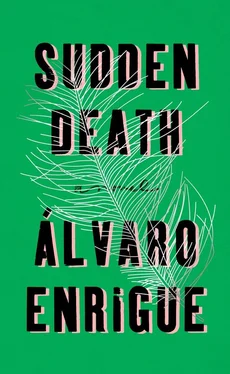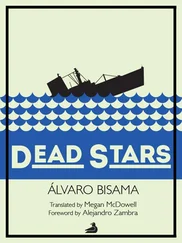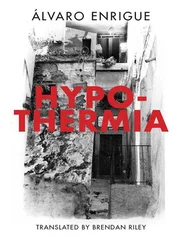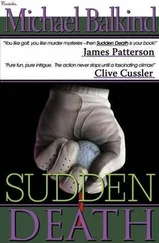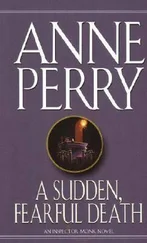Quevedo had met Girón many years earlier, when Francisco was a boy and Pedro a very young diplomat’s apprentice in the service of the duke of Feria. Both were members of the extravagant delegation headed by the infanta Isabel Clara Eugenia, sent to the Estates-General of France to petition for the Crown of France. No crossing of the Pyrenees could have been more ridiculous, no convoy of high and low nobility more grotesque.
The man charged with presenting the infanta’s impossible candidacy was the duke of Feria. Pedro Téllez Girón — at the time only the marquis of Peñafiel, because his lackluster father was still alive — figured as his secretary. Francisco de Quevedo, aged eight, had come along because children traveled with their parents and he was the son of a lady-in-waiting to the infanta, present on the expedition. Quevedo’s sister was there too; she was a child attendant, something like a lapdog.
What a crossing: carts bulging with items of a luxury smothering enough to enable the infanta to feel at home in any inn; carriages crammed with ladies in towering coiffures trailing lineages so lengthy that they spilled out the windows; the men ahead and on horseback, in breastplates trimmed with American gold as if to remind Paris that the world belonged to them, though Philip hadn’t been as good as his father, Charles, at holding on to it; the children, and there must have been many, shoehorned in between chests and throwing clods and slabs of dirt at one another amid much hilarity. The purpose of this whole circus was to demand that the Estates-General crown Isabel Clara Eugenia, a thing that simply could not happen. France hadn’t been governed by a woman since Salic law was adopted in 1316. Not to mention that the infanta was Spanish, left-handed, fat, a bit slow, chewed her fingernails, and picked her nose and ate it.
The list of personages who made the trip is preserved in the archives of the National Library of Spain, and Quevedo and Girón’s names appear on it. There is also a travel log. In the diary of the secretary to the duke of Feria’s mother, an entry made in Gerona dated June 27 laments that the delegation’s delays and the inability of the poor infanta to command respect were turning the convoy into a carnival. The secretary writes: “Girón, never in earnest, goes about everywhere with a little maggot who calls Her Majesty ‘La Elefanta.’” Who else could it be?
Girón and Quevedo met again many years later in Alcalá de Henares. Pedro Téllez Girón — by now duke of Osuna, a grandee of Spain — was, like his friend, a man of ready tongue and insatiable urges; a drunk and a brawler from first to last. A man who knew how to get himself into trouble — and out of it.
In the autumn of 1599 he was dogged by three trials. The first was a result of keeping company with the actress Jerónima de Salcedo, whom he had set up in his house in Alejos with her father and husband. Osuna got only a minor reprimand, but the actress and her family were sentenced to flogging, feathering, and parading, she for being a kept woman, her father for being a pimp, and her husband for being a cuckold.
Another trial, thornier this time, involved an uncle of Osuna’s — a bastard son but an influential man — who had been his tutor. Juan de Ribera, Viceroy of Valencia, had accused this uncle of murdering his own wife and replacing her in the nuptial bed with a young page, with whom he apparently did the nefarious deed with scandalous enthusiasm and frequency.
Osuna’s uncle and the page were garroted in the plaza and their bodies burned. Though it seemed that all Valencia could testify to their amours, Pedro Téllez Girón stood in his tutor’s defense until the end and escaped unscathed, though he was sentenced to house arrest — where he must not have had such a bad time, because the actress and her family were still awaiting the conclusion of their own trial.
The third trial must have been by far the worst, because not a single official record is left of the crime he committed with another scoundrel, who might have been Quevedo. During this trial Osuna was jailed in Arévalo Prison and then locked up in his house in Osuna under the strict watch of four bailiffs. Historians and assorted amateurs have put two and two together and surmised that the sin for which Girón ended up in Arévalo was the murder of one or more soldiers in a dispute over a racket game.
In his Account of Occurrences in the Court of Spain , the historian Luis Cabrera de Córdoba reports that on August 6, 1599, while under house arrest, Osuna asked for leave to go to Madrid to kiss the king’s hand, and, “having been granted it, he used it to go to Seville, and even — it is said — to Naples, to indulge his urges.” It’s more than likely that he brought along his comrade in revelry, who was also under house arrest at the time.
In Seville, Quevedo — his position vastly more precarious than Osuna’s — must have tried to convince him that they should go to New Spain, like the narrator of El Buscón , an autobiographical novel he wrote soon afterward (though he never acknowledged authorship). “Seeing that this matter was of long duration,” says his protagonist, “and that ill fortune pursued me ever more adamantly, I determined to remove myself to the Indies, not because I had learned my lesson — I am not so level-headed — but out of weariness, as an inveterate sinner, in hopes that in a new world and land, my luck would improve.”
It’s very likely that, once in Seville, they did travel on to the south of Italy — which was within the comfortable embrace of empire yet not within easy reach of the bailiffs of Philip III. At the time, the viceroy of Naples and the Two Sicilies was the duke of Lerma, a close relative of Osuna’s and protector of Quevedo’s family. In the end — and this does show up in a number of documents — it was the wife of the viceroy of Naples, the duchess of Lerma, who obtained the royal pardon for the young Francisco, which allowed him eventually to receive his bachelor’s degree and return to the halls of the university for a doctorate in jurisprudence and grammar.
There was no need for a royal pardon for Osuna. In the countries where Spanish is spoken, nothing ever happens to the bearers of great names, unless they entangle themselves with bearers of even greater names — and the poor slain soldiers were not that.
Neither the duke nor the poet was the sort to stay put: under the protection of the viceroy of Naples, they must have ranged farther. The allure of Rome at the turn of the seventeenth century was irresistible. No matter the day — October 4, 1599, included — anyone would have been better off in Rome than at a graduation ceremony.

When at last he could get up — his balls still throbbing like two melons with lungs — he walked over to the railing of the gallery and said in a faint voice to his second that he couldn’t play like this: You have to do something. He rubbed his crotch gingerly. The duke, his eyes still brimming with tears of laughter, put a hand on his shoulder: You have to keep playing; Spain turns out nothing but soldiers and artists and you can’t let anyone here know that you’ve never been to war. But it wasn’t fair. You won the game, it was fair. So how am I supposed to move with a pair of octopuses for balls? Go and serve.
Holding the railing, he tried a few squats. Give me my sword, he said to the duke when, if not capable of playing, he at least felt capable of living. No, he’s provoking you, the duke responded. Give it to me. I won’t; it’s Italian cunning, as if you don’t know what they’re like. I won’t even unsheathe it; Spanish bluster.
Читать дальше
